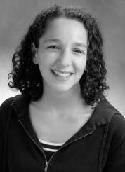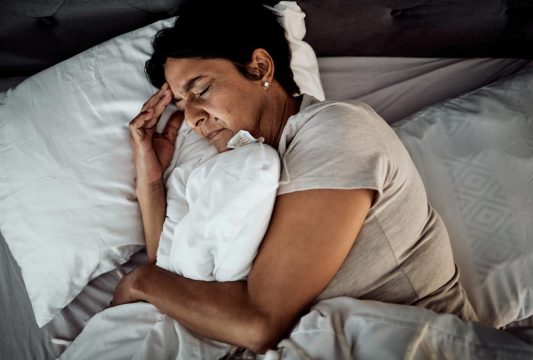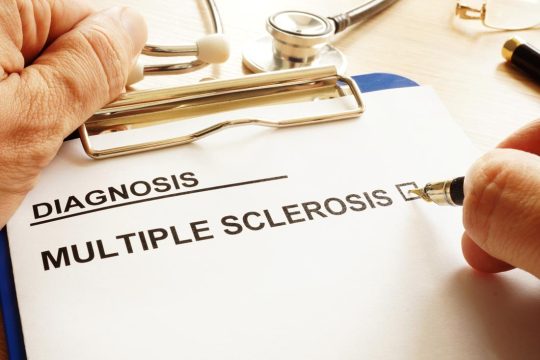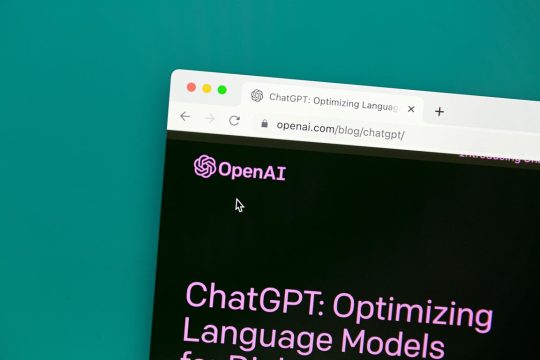Advertisment
Children with cancer have complete responses in a Children’s Oncology Group phase 1 trial

Pictured: Dr. Yael P. Mosse is a pediatric oncologist at The Children’s Hospital of Philadelphia. Children’s Hospital of Philadelphia researcher leads trial of ALK inhibitor in neuroblastoma, lymphoma. A pill designed to target abnormal genes that drive specific cancers has produced encouraging early results in children with an uncommon but aggressive type of lymphoma, as well as in children with a rare form of neuroblastoma.
A phase 1 clinical trial of the drug crizotinib achieved remissions, with minimal side effects, for 10 of the children participating in a clinical study carried out by the multicenter Children’s Oncology Group (COG). The results were “an exciting proof-of-principle” for the targeted treatment, said the study leader, Yaël P. Mossé, M.D., a pediatric oncologist at The Children’s Hospital of Philadelphia.
Mossé presented study findings today at a press program organized by the American Society of Clinical Oncology (ASCO) in advance of its annual meeting in early June. In addition, the society selected the research for its Best of ASCO program following the meeting, and has announced that Mossé will be the first recipient of its James B. Nachman ASCO Junior Faculty Award in Pediatric Oncology.
Mossé previously led a team at Children’s Hospital that discovered in 2008 that aberrations in the anaplastic lymphoma kinase (ALK) gene are present in 14 percent of cases of high-risk neuroblastoma, the most common solid cancer of early childhood. The same gene is disrupted in some cases of anaplastic large cell lymphoma (ALCL), a cancer of the lymph cells, and in patients with non-small cell lung cancer. Because drug manufacturers had already developed crizotinib for use in adult lung cancer clinical trials, Mossé and colleagues were able to quickly move crizotinib into an initial pediatric trial.
“We are entering a new era of cancer therapy, in which we use knowledge of basic biology to design very specific drugs that target cancer cells with potentially less side effects on healthy tissue,” said Mossé. “In addition, as we concentrate on targets in molecular pathways, we move away from an exclusive focus on one form of cancer to customizing treatments according to biological activity. Abnormal ALK activity occurs in subtypes of neuroblastoma and subtypes of lymphoma, so identifying ALK activity in individual patients may enable us to provide the most effective care.”
The current trial was not restricted to patients with known ALK abnormalities, but was open to children with certain refractory or relapsed cancers. There were 62 patients enrolled who could be fully evaluated for drug toxicity. Toxic side effects were minimal, even though many of the dosages were relatively high.
For 8 children with ALCL, 7 had complete responses — no cancer could be detected with imaging scans. Within days of taking the oral medication, said Mossé, fevers and chills stopped in many children, and their pain diminished or disappeared.
Twenty-seven patients enrolled in the trial had neuroblastoma, a difficult-to-treat cancer of the nervous system. Of the two patients with known germline mutations in ALK—mutations occurring in every cell in their body—which can be found in the very rare form of neuroblastoma, familial neuroblastoma, one achieved a complete remission. Of the 19 neuroblastoma patients in the trial whose ALK status was not able to be studied in the molecular diagnostic lab at Children’s Hospital, a second patient had a complete remission.
“The current study shows the great potential for targeted therapy in children with anaplastic large cell lymphoma,” concluded Mossé, “and the COG is now planning a larger scale trial for these patients.” Additional studies are also underway to determine whether children with forms of neuroblastoma other than familial neuroblastoma, as laboratory studies suggest, might benefit from crizotinib.
See http://bit.ly/L6ahQ8 for a multimedia web page about this research with photos, videos and patient stories.
Financial support for this Children’s Oncology Group study came from the National Cancer Institute and from Pfizer, Inc. Co-authors with Mossé included researchers from The Children’s Hospital of Philadelphia, C.S. Mott Children’s Hospital, Children’s Hospital Boston, the University of Minnesota, Minneapolis, Baylor College of Medicine, and Texas Children’s Cancer Center.
“Efficacy of crizotinib in children with relapsed/refractory ALK-driven tumors including anaplastic large cell lymphoma and neuroblastoma: A Children’s Oncology Group phase 1 consortium study,” Abstract 9500, American Society of Clinical Oncology, 2012 Annual Meeting.
Click here for more information.





